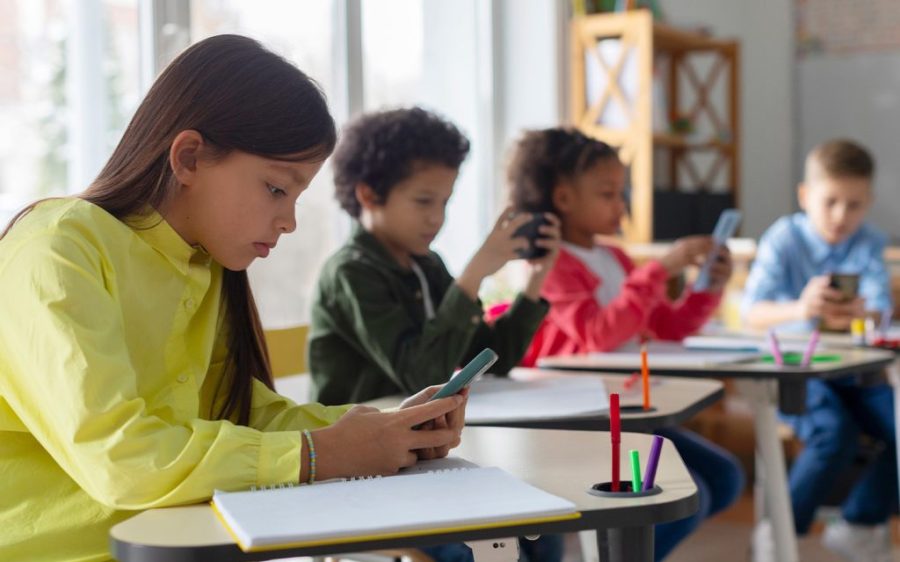Portugal has approved a ban on most cell phones in schools up to 6th grade, which will take effect at the start of the next school year, reports the Portuguese news agency Lusa.
The Council of Ministers issued a statement announcing the approval of a decree-law that “regulates the use, in schools, of electronic equipment or devices with internet access, such as smartphones, prohibiting their use by students in the 1st and 2nd cycles of Basic Education, from the next school year.”
The new measure, they continue, takes into account the results of the study by the Center for Planning and Evaluation of Public Policies on the recommendations issued by the Ministry of Education, Science and Innovation, in September 2024, regarding the use of smartphones in schools.
In 2024, the ministry recommended banning smartphones in the first two cycles (ages 6 to 12) and limiting use in the 3rd cycle (ages 12 to 14). The subsequent study documented shifts in bans, restrictions and free use of smartphones, as well as impacts on behaviour.
[See more: Brazil has passed a law restricting smartphone use in schools]
The research showed that bans had positive impacts on reducing bullying and indiscipline, particularly in the 2nd cycle, 3rd cycle and in high school. The study also found the overwhelming majority of students began socialising more during breaks, and doing physical activities and playing during recess.
Principals also provided valuable feedback on the difficulties of monitoring and implementing the measures, particularly in schools where different levels of education share the same space. They argued that implementation should be done in stages and paired with an awareness-raising phase.
There are also some exceptions to the measures, including students with a low proficiency in the Portuguese language, who have health reasons and where phones are necessary for the development of classroom activities or on study visits, which must be properly structured by the teacher.
So-called dumbphones, those without the ability to connect to the internet or use apps, are not covered by the measures, “whether restrictive or prohibitive.”






